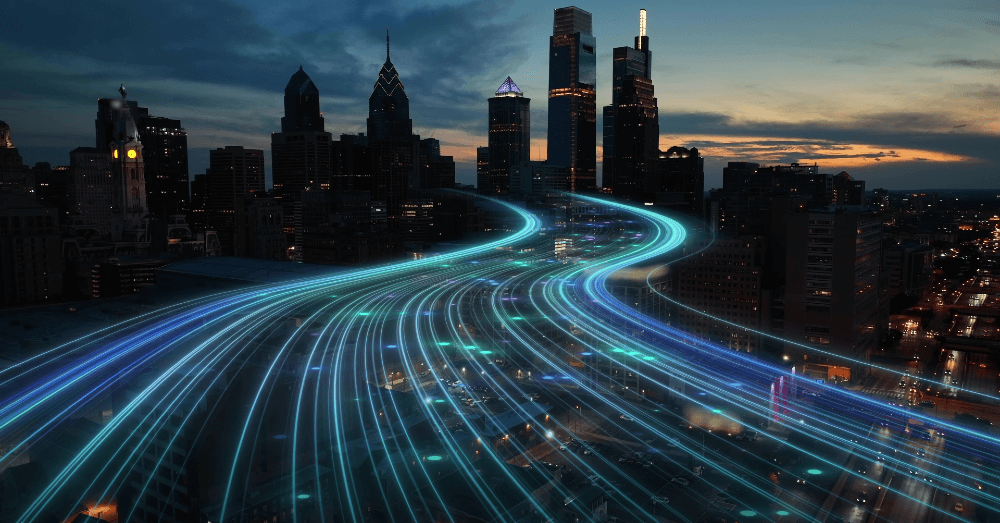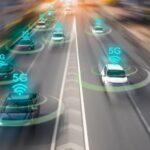Technology is entering every part of our lives, including urban environments and living in cities. What are some of the latest tech innovations or smart cities?
Connection and convenience through technology is becoming more widespread than ever before. Smart cities can function as a cohesive system improving the quality of life for people living in those cities. Most cities can now operate the climate system, or function with tech-rich urban solutions that make a huge difference in the lives of the people living there.
Here are some of the best tech innovations being used in smart cities.
Smart Mobility
People need to get around, and some people aren’t mobile. This is where smart mobility can make a huge difference. This technology can move people around the area who would otherwise be stuck at home and immobile. Intelligent traffic management and advanced commuting options also contribute to the eco-friendliness of urban mobility. Autonomous vehicles, hyperloops, and robotaxis help improve the transportation options in many smart cities. Using smart mobility, more people have the freedom to go where they need to whenever they want.
Digital Citizen
This is a tech innovation for smart cities that focuses on increasing citizen engagement, collaborative community, and access to healthcare and education. The priority is digital inclusivity, which allows technology to connect diverse populations. Inclusive services allow equal rights for civic participation and career opportunities. This could mean a local connection for online voting and remote interactions with officials. Remote and personalized learning allows citizens to broaden their horizons with better access to global education. AI-powered healthcare ecosystems provide early prediction and prevention measures, ensuring support for the elderly.
Public Safety and Security
Smart cities are embracing digitized public safety and security, which enables efficient crime-solving and better handling of emergency situations. These connected and digitized cities prioritize surveillance systems, smart streetlights, and real-time crime mapping to help solve problems and address concerns. Through the use of AI technology, these cities are able to provide predictive policing and leverage big data to keep citizens safer. The use of this technology also plays an important role in optimizing road traffic by anticipating incidents and preventing fires. Some cities have even embraced drone technology aids for aerial monitoring.
Smart Energy
Energy is a huge part of the tech innovations in smart cities. Finding smart ways to prioritize reliable, efficient, and eco-friendly energy systems is the wave of the future. Using interconnected Information of Things to enhance energy management by delivering data-backed decisions for better energy storage and distribution, these cities can maintain smart grids to provide real-time tracking. Virtual power plants are a means to efficiently distribute energy and to aid clean energy transition. This leads to new renewable energy practices to transform organic waste into biogas using bacteria.
E-governance
Many government processes have bene moved into digital formats to allow smart cities to have ways to help the citizens in the city enjoy the use of various programs. Examples of city governments utilizing digital processes includes online voting, digital passports, and improved data security tools to encourage citizen participation. Using digital processes can certainly get more citizens involved in most cities. Some locations even utilize online retraining programs and local e-career centers to help people find jobs and connect with employers.
Green Urban Planning
Climate change is a huge problem in the world, and digital processes are helping many cities plan their urban areas with green processes and smarter and more sustainable solutions. This type of planning is one of the most impressive tech innovations happening in many smart cities. Some locations have created decarbonization goals that drive the design of green urban spaces with sustainable neighborhoods and a 15-minute city model. Green spaces, such as parks and community gardens, help to enhance biodiversity and air quality. Using technology, cities can learn where best to create new parks for the greatest impact.
Advanced Waste Management
Increased urban populations lead to increased waste production. Recycling and proper waste management are extremely important in most cities. Those cities employ IoT sensors in advanced waste management systems to accurately monitor waste disposal. This provides consumption feedback and monetary rewards to residents for recycling and reducing their waste. Using intelligent bins to sort trash and regulate garbage volume, many cities can improve their recycling and cut down on the amount of waste that ends up in landfills.
Many tech innovations are improving smart cities and creating better ways for people to function and live in urban environments.



